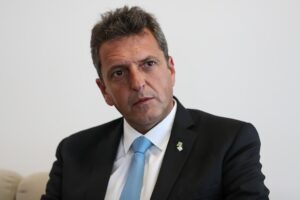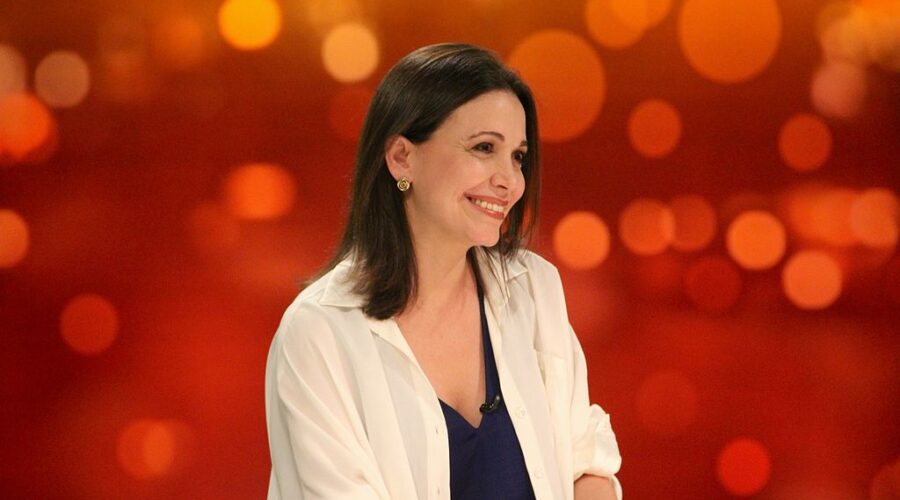Two important electoral processes took place this Sunday in Latin American countries: Argentina had the first round of a presidential election and will go to a second round on November 19, and Venezuela chose the opposition candidate who will run against Nicolás Maduro in the 2024 presidential election.
In both cases, analysts are unable to predict a clear outcome. Both Venezuela and Argentina face economic and social problems — the picture looks quite complicated in the coming weeks if agreements that favor the population are to be reached.
Argentina: Massa and Milei will face each other in a run-off election
Sergio Massa won the first round in Argentina, something that seemed unthinkable to many analysts; after all, the country has 140% inflation and he is the Minister of the Economy. These economic problems did not seem to bode well for the minister, but the surprising results show that Argentina continues to defy all predictions at the ballot box.
Although the polls anticipated economist Javier Milei would be the winner, Massa obtained 36.68% of the votes, leaving Milei in second place with 29.98%. With these numbers, the final stage of an election begins, in an unexpected political scenario.
Sunday’s elections, which knocked out coalition candidate Patricia Bullrich, will be decided on November 19. Until then, the position of Massa, who managed to unify the Peronist vote, is unstable as long as the economy continues to plummet. However, he counts in his favor the fact that a large part of the electorate does not trust Milei, considering him a danger to democracy.

Massa has been oscillating in his political career between Peronism and other wings, generating rivalry with former President Cristina Fernández de Kirchner with whom he later tightened alliances as a political strategy. These changes in perspective have led to distrust from the electorate.
Meanwhile, Milei has promised to turn Argentina into a global power, breaking with structures in his path such as the suppression of some departments including the Ministry of Education, to make way for the Ministry of Human Capital that would merge the Ministries of Social Development, Education and Health. Analysts consider that Milei has been able to connect with the fatigue of the population, but his plans worry part of the Argentinian population, who sometimes call him the madman.
Venezuela chooses opposition candidate for 2024 presidential elections
María Corina Machado won the opposition primaries in Venezuela, now she is the main name to face Nicolás Maduro in the 2024 elections. Although Machado managed to unify the population by obtaining 93% of the opposition vote, her candidacy begins with a big question mark: will she be able to register as a candidate?
In June of this year, the Venezuelan Comptroller General’s Office disqualified Machado from holding public office for 15 years. Analysts argue that this is a move by Maduro’s government to avoid facing a rival who has the support of the people. This is not the first time that Machado and other opposition politicians have received bans, in previous presidential elections at least one of the opposition pre-candidates has faced this obstacle.
The answer regarding Machado’s candidacy has not yet been answered. Prior to the elections, the government and the unitary platform of the opposition went back to the negotiation table to reach agreements on different points, one of which was the authorization of candidates and political parties, but it is not known what the response of Maduro’s government will be. The possibility of lifting disqualifications could also come with the announcement of the temporary removal of financial sanctions by the U.S. government that prevented the receipt of Venezuelan oil revenues, a measure that will be maintained or extended if Maduro collaborates in fair elections.
The negotiations, which were interpreted as an advance by the international community, helped to define points that Chavismo had not wanted to commit to about the elections, such as the possible date. Similar agreements have been obtained in the past, but with little success, and this makes the population take it with caution.
Analysts know that Machado is a rival who worries Maduro’s government; however, although she currently has the support of the people, she has not maintained good relationships with other opposition leaders over the years. Although analysts consider that unity could be maintained in the opposition, they do not expect the government to lift the ban on Machado — who could potentially defeat Maduro according to polls.
The director of the pollster Datanálisis, Luis Vicente León, considered several scenarios in addition to the qualification: “One is that Machado demands the people to defend her in the streets and this generates a new conflict and electoral delegitimization; another is that Machado feels entitled to choose who will be the unitary candidate, with the danger that the others refuse and another fracture is generated; and a third scenario is that the opposition has to choose a substitute candidate again, which takes us back to the initial point, but with a strengthened Machado.”
Images: María Corina Machado by Gabo Bracho and Sergio Massa by Palácio do Planalto from Brasilia, Brasil

